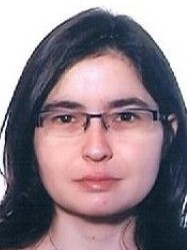Summary
Dr Beatriz Galindo-Prieto is currently a research associate in the Environmental Toxicology Group (part of the Environmental Research Group) of the School of Public Health (Faculty of Medicine, Imperial College London). She is specialized in developing and applying methods for multiblock/multi-omics and multivariate data analysis, dimensionality reduction of big data, variable/feature selection, and a diverse range of statistical methods for interpretation, prediction and classification of data (including methodologies based on projections to latent structures such as PLS models). She is currently working on developing and applying bioinformatics methodologies for integrative analysis of RNA-seq large datasets (UKRI NERC funded projects linking air pollution exposures to gene methylation patterns). Her role also includes teaching/supervision activities and bioinformatics support to her research group.
Background/Experience: She obtained her MSc degree in Chemistry at the University of the Balearic Islands (Mallorca, Spain), and her PhD in Chemometrics, with emphasis in method development for multivariate and multiblock data analysis at Umeå University (Umeå, Sweden). She combined her research activity with teaching in courses for undergraduate, MSc and PhD students. Her main contribution from her PhD was the development and implementation of three novel algorithms/methods for variable selection in medium and large datasets with applications in analytical chemistry, spectroscopy, imaging, systems biology, medicine, epidemics, and industrial processes, among other. After defending her PhD thesis (entitled “Novel variable influence on projection (VIP) methods in OPLS, O2PLS, and OnPLS models for single- and multi- block variable selection: VIPOPLS, VIPO2PLS, and MB-VIOP methods”) in February 2017, she decided to move to Trondheim (Norway) for extending her skills and exploring new perspectives in machine learning for big data as postdoctoral fellow (ERCIM funded, Big Data Cybernetics project) at the Department of Engineering Cybernetics of NTNU, in combination with lecturing in undergraduate and MSc courses and co-supervising MSc students. In 2019, she accepted a position as post-doctoral associate at Weill Cornell Medical College (New York, USA) where she worked on implementing methodologies for better understanding brain and serum big data related to metabolomics, transcriptomics and cognition in the neuroscience field (Alzheimer’s disease). In 2021, she decided to move to London (United Kingdom) to join Imperial College London as research associate and apply her computer science skills to real-time modelling and forecast/prediction using epidemiological data related to Ebola and COVID-19 outbreaks. She is currently working at ERG on developing methodologies and using bioinformatics for analysing air pollution and transcriptomics data.
She is interested in research topics that can generate positive and high impact in our society, and she enjoys working in interdisciplinary collaborations when the opportunity arises. Some of the projects in which she is involved relate to the development and the improvement of statistical methods and multidimensional visualizations for data exploration, including methods based on projections to latent structures such as partial least squares regression (PLS-R), data fusion, chemistry and systems biology.
Selected Publications
Journal Articles
Horgusluoglu E, Neff R, Song W-M, et al., 2022, Integrative metabolomics-genomics approach reveals key metabolic pathways and regulators of Alzheimer's disease, Alzheimers & Dementia, Vol:18, ISSN:1552-5260, Pages:1260-1278
Galindo-Prieto B, Geladi P, Trygg J, 2021, Multiblock variable influence on orthogonal projections (MB-VIOP) for enhanced interpretation of total, global, local and unique variations in OnPLS models, BMC Bioinformatics, Vol:22, ISSN:1471-2105
Vulchanova M, Chahboun S, Galindo-Prieto B, et al., 2019, Gaze and Motor Traces of Language Processing: Evidence from Autism Spectrum Disorders in Comparison to Typical Controls, Cognitive Neuropsychology, Vol:36, ISSN:0264-3294, Pages:383-409
Reinke SN, Galindo-Prieto B, Skotare T, et al., 2018, OnPLS-Based Multi-Block Data Integration: A Multivariate Approach to Interrogating Biological Interactions in Asthma, Analytical Chemistry, Vol:90, ISSN:0003-2700, Pages:13400-13408
Galindo-Prieto B, Westad F, 2018, Classification in hyperspectral images by independent component analysis, segmented cross-validation and uncertainty estimates, Journal of Spectral Imaging, Vol:7
Galindo-Prieto B, Trygg J, Geladi P, 2017, A new approach for variable influence on projection (VIP) in O2PLS models, Chemometrics and Intelligent Laboratory Systems, Vol:160, ISSN:0169-7439, Pages:110-124
Galindo-Prieto B, Eriksson L, Trygg J, 2015, Variable influence on projection (VIP) for OPLS models and its applicability in multivariate time series analysis, Chemometrics and Intelligent Laboratory Systems, Vol:146, ISSN:0169-7439, Pages:297-304
Galindo-Prieto B, Eriksson L, Trygg J, 2014, Variable influence on projection (VIP) for orthogonal projections to latent structures (OPLS), Journal of Chemometrics, Vol:28, ISSN:0886-9383, Pages:623-632
Dumarey M, Galindo-Prieto B, Fransson M, et al., 2014, OPLS methods for the analysis of hyperspectral images-comparison with MCR-ALS, Journal of Chemometrics, Vol:28, ISSN:0886-9383, Pages:687-696
Thesis Dissertations
Galindo-Prieto B, 2017, Novel variable influence on projection (VIP) methods in OPLS, O2PLS, and OnPLS models for single- and multi-block variable selection: VIPOPLS, VIPO2PLS, and MB-VIOP methods

